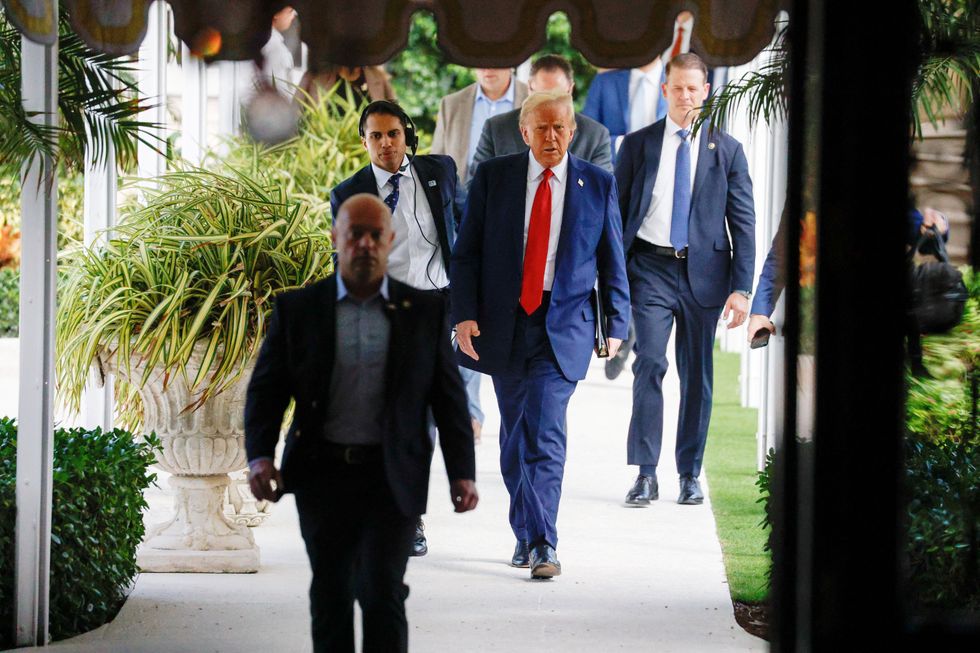
On Monday, the Trump administration presented its arguments to the U.S. Supreme Court regarding the President’s authority to deploy military troops in domestic situations. The administration contends that no court, including the Supreme Court, should question President Donald Trump‘s decision to mobilize the National Guard in response to unrest in U.S. cities. Trump’s legal team argues that the President’s call-up of the National Guard is a fundamental exercise of his power as Commander in Chief, based on a clear delegation from Congress.
In their submission, Trump’s attorneys stated, “The President’s determination to call up the National Guard is a core exercise of his power… That determination is not judicially reviewable at all; at minimum, it is entitled to extremely deferential review.” They referenced a historical case, Martin v. Mott, from 1827, which discussed the President’s discretion in military matters. However, critics note that this case does not support the claim that courts cannot review decisions made by the President regarding military deployment.
Public sentiment appears to be against the use of military forces in civilian affairs. Surveys indicate that a significant majority of Americans oppose deploying military troops in U.S. cities absent a foreign threat. This hesitance is deeply rooted in the nation’s history, recalling the Revolutionary War when colonists faced the tyranny of King George III, whose troops enforced oppressive measures.
The Constitution, specifically Article I, Section 8, Clause 15, grants Congress the authority to call forth the National Guard to enforce laws, suppress insurrections, and repel invasions. This constitutional basis is further supported by Title 10 USC 12406, which outlines the conditions under which a President may mobilize the militia. Additionally, the Posse Comitatus Act restricts the use of federal armed forces in law enforcement matters unless explicitly permitted by the Constitution or federal law.
Concerns have been raised regarding the Trump administration’s portrayal of threats against Immigration and Customs Enforcement (ICE) agents. Officials have reported heightened violence against ICE personnel, alleging incidents of ambushes and attacks. However, many eyewitness accounts and video evidence challenge these claims, revealing discrepancies in the official narratives.
For instance, in incidents where ICE agents reported their vehicles were rammed, footage indicated that the agents’ vehicles were the aggressors. Additionally, Border Patrol commander Gregory Bovino admitted that he was not hit by a rock until after deploying tear gas at a protest, contradicting earlier statements. Reports from credible sources, including NPR, have found no evidence supporting claims of a significant rise in assaults against ICE agents, further complicating the administration’s justification for military involvement.
As the legal battle unfolds, both the Ninth Circuit and Seventh Circuit appellate courts have previously addressed the President’s deployments. Both courts rejected Trump’s argument that these military actions are beyond judicial review. The Ninth Circuit’s decision is pending full en banc review, while the Seventh Circuit concluded that the conditions on the ground did not align with the administration’s claims.
The Supreme Court has now been asked to consider the interpretation of 10 USC 12406(3), which allows the President to mobilize the National Guard when he is “unable with the regular forces to execute the laws of the United States.” This case has significant implications for the balance of power between the executive branch and the judiciary, especially regarding the military’s role in domestic affairs.
The outcome may determine not only the legal boundaries of the President’s authority but also the implications for civil liberties in the face of heightened tensions. With increasing concerns over the militarization of domestic law enforcement, the Supreme Court’s ruling could have lasting effects on American governance and the protection of citizens’ rights.







